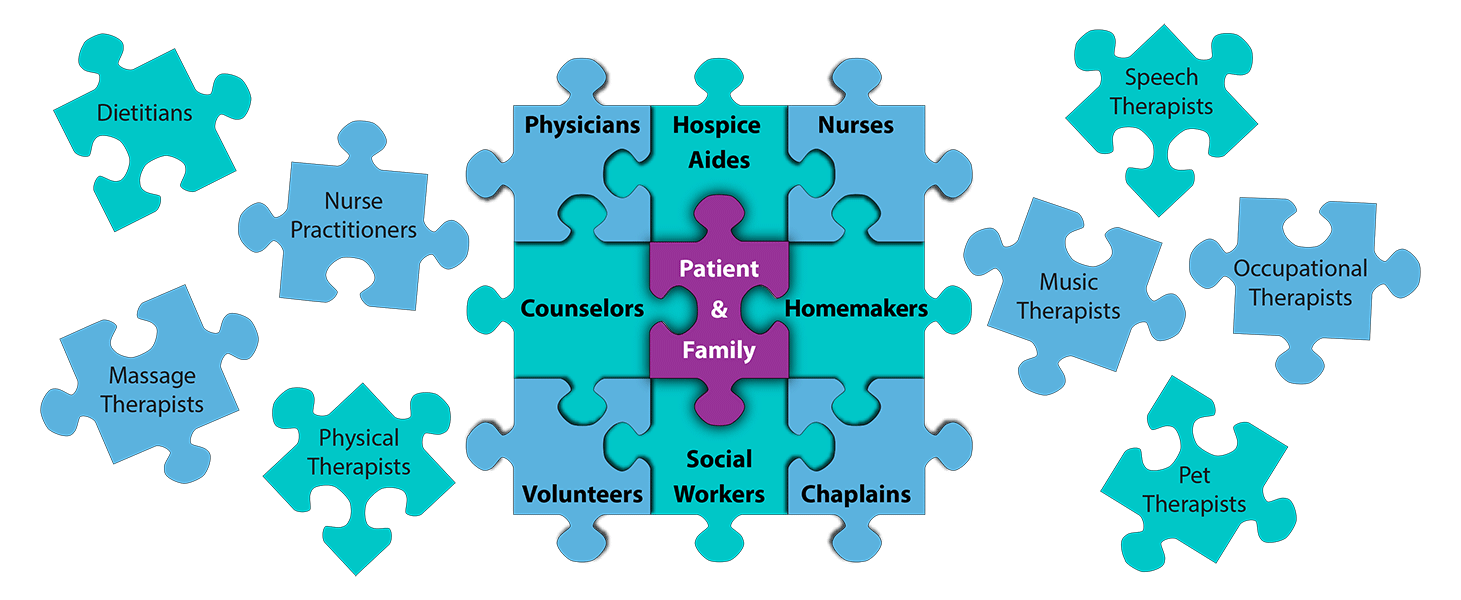Hospice care at Hospice of West Alabama (HOWA) is a family-centered approach that includes, at a minimum, a team of doctors, nurses, home health aides, social workers, chaplains, counselors and trained volunteers. They work together focusing on the patient’s physical, emotional, and spiritual needs.
The goal is to help keep the person as pain-free as possible, with loved ones nearby until death. The hospice team develops a care plan that meets each person’s individual needs for pain management and symptom control.

It is important to find out what the role of the person’s primary doctor will be once the person begins receiving hospice care. Most often, a person can choose to have their personal doctor involved in the medical care. Both the physician and the hospice medical director may work together to coordinate the person’s medical care, especially when symptoms are difficult to manage. Regardless, a physician’s involvement is important to ensure quality hospice care. The hospice medical director is also available to answer questions the person or loved ones may have regarding hospice medical care.
In many cases, family members or loved ones are the person’s primary care givers. Hospice recognizes their own special needs for support. As a relationship with the hospice begins, hospice staff will want to know how best to support the person and family during this time.
Among its major responsibilities, the interdisciplinary hospice team:
Support can include conversations with the person and family members, teaching caregiving skills, prayer, telephone calls to loved ones, including family members who live at a distance and companionship and help from volunteers.
Counseling or grief support for the person and loved ones are an important part of hospice care. After the person’s death, bereavement support is offered to families for at least one year. These services can take a variety of forms, including telephone calls, visits, written materials about grieving, and support groups. Individual counseling may be offered by the hospice or the hospice may make a referral to a community resource.